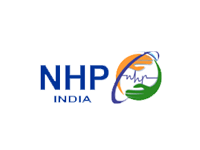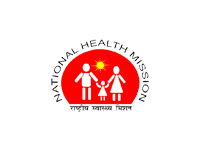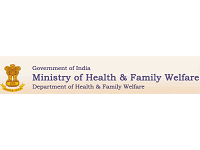Blood Transfusion Services have to ensure that Blood/ Components (Whole Blood/ Packed Red Cells/ Plasma/ Platelets) are
- Available (Adequate Blood Collection to fulfil need)
- Accessible (Enough reach where it is needed)
- Affordable (At reasonable costs)
- Safe (Not cause harm, especially TTI)
- Of standard quality (Provide clinical gain)
WHO recommends that “National Blood System should be governed by National Blood Policy and legislative framework to promote uniform implementation of standards and consistency in the quality and safety of blood and blood products”
National Blood Policy 2002: (8 objectives) of which the following objectives are aligned to the above.
Objective 1
“To reiterate firmly the Govt. commitment to provide safe and adequate quantity of blood, blood components and blood products”
Objective 2
“To make available adequate resources to develop and re-organize BTS”
Objective 3
“To make latest technology available for operating the BTS”
In accordance with the directive of the Supreme Court, National Blood Transfusion Council was constituted in 1996 with the objectives to promote voluntary blood donation, ensure safe blood transfusion, provide infrastructure to blood centres, develop human resource and formulate and implement the Blood Policy.
National Blood Transfusion Council (NBTC) is the policy formulating apex body in relation to all matters pertaining to operation of blood centres. The NBTC is the central body that coordinates the State Blood Transfusion Councils (SBTCs) and also ensures involvement of other Ministries and other health programmes for various activities relate to Blood Transfusion Services (BTS).
Milestones of Blood Transfusion Services are
1945 : First blood bank in Kolkata
1954 : Voluntary blood donation began. Enhanced:1962/1965/197 Wars
1975 : Blood bank licensing process started with HBV, Syphilis & Malaria
1988 : HIV testing made mandatory
1989 : MD Programme
1992 : BTS under EMR division of DGHS
1992 : NACO started and BTS shifted under NACO as BS Division
1996 : Supreme court Judgement (PIL filed by common causes vs GoI)
1996 : NBTC and SBTC formed
1997 : Mandatory licensing of Blood banks
1998 : Professional donor banned
2001 : HCV testing made mandatory
2002 : National Blood Policy formulated
2008 : Blood Storage Centers
2009 : New Initiatives (Metro Blood Banks and plasma Fractionation Centre)
2014 : National Plasma Policy formulated
2016 : Baseline Assessment of all licensed Blood Banks in the Country
Presently, the NBTC is housed within NACO and functions through resources available with the Blood Transfusion Services Divison. 25 meetings of the Governing Body of NBTC have been held and important policy decisions have been taken pertaining to Blood Transfusion Services.
National Blood Transfusion Council is being empowered to fulfill its roles and responsibilities as the policy formulating apex body for all matters pertaining to the organization, operation, standards and training of a sustainable and safe blood transfusion service for the country. Mechanism for better coordination between NBTC and SBTC and providing technical, financial and managerial assistance to SBTC as needed to implement the national blood programme are being developed and implemented.
NBTC has formulated guidelines for recovery of Processing Charges for Blood and Blood Components across blood banks in all sectors. It has also laid down uniform norms for issuance of ‘NOC’ for new blood banks, Renewal of License, Criteria for designation Blood Bank as RBTC, Guideline on Bulk Transfer of Blood and Guidelines on Exchange of surplus plasma with indigenous fractionators has been released by NBTC to support voluntary blood donation and rationalize blood utilization. A compendium of National Blood Policy and Guidelines of NBTC has been brought out by NACO in 2016, which can be downloaded from NACO website.
NBTC is supported by a National Transfusion Services Core Coordination Committee under chairpersonship of Director General of Health Services and a Technical Resource Group under chairpersonship of Dr Neelam Marwaha, HOD, Department of Transfusion Medicine, PGIMER, Chandigarh.
Gazette notification dated 2nd February 2017 pertaining to Blood Banks
Assessment of Blood Banks in India - 2016
NACO/NBTC in collaboration with CDC/CMAI and CMC, Vellore has conducted the baseline assessment of 1126 NACO supported Blood Banks in July 2016 and the report “Assessment of NACO supported Blood Banks – A preliminary report 2016” was released on the occasion on World Hepatitis Day on 28th July 2016. This was followed by a baseline assessment of all licensed Blood Banks in the country and the detailed report “Assessment of Blood Banks in India – 2016” was released on the occasion of World AIDS Day on 01st Dec 2016.In continuation, individual State Level Assessment Reports are also prepared.
The Assessment of Blood Banks was carried out with the specific objectives of reviewing the existing situation in Blood Banks in terms of blood collection, voluntary blood donation, quality management systems, and other areas; and to categorize and grade the Blood Banks using a scoring system, for implementation of phased quality improvement systems. This assessment highlights the key issues, gaps, challenges, and givespossible opportunities to the state health officials and programme officers for taking necessary steps towards strengthening of the Blood Transfusion Services in the country.
All the reports can be downloaded from the following links:
Assessment of NACO supported Blood Banks – A Preliminary Report 2016
Assessment of Blood Banks in India – 2016
State Level Assessment Reports
Guidelines for Blood Donor Selection and Blood Donor Referrals


























